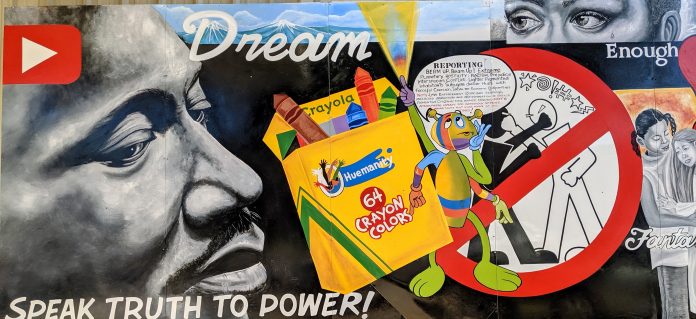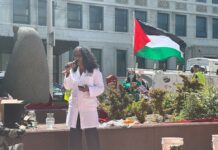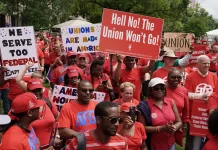Listen to the full episode here:

©Israel McCloud “Speak Truth to Power” Instagram: @israelmccloudstudio
Today, we examine the Rev. Dr. Martin Luther King’s legacy and impact by highlighting organizations who have continued the work of the nonviolent Civil Rights Movement (CRM), on the 92nd anniversary of his birth.
Reflecting on Dr. King’s speech, we look at the wealth gap in America, the lack of access to basic health care in the midst of one of the worst pandemics in modern times, and systemic racism that impacts the quality of life for African Americans and other people of color.
“Dr. King’s 1967 speech “Where Do We Go From Here, Chaos or Community,” and book, offers a significant structural critique of the American political economy with its suffocating poverty and its deep inequalities despite its material abundance and technological advances.” -Dr. Mtangulizi Sanyika
Covid, Race and Democracy is a collective effort by the Pacifica Radio Network and it’s affiliates. Special thanks to the Pacifica Covid Task Force.
Playlist
Community Music Center of Houston’s live performance of Glory
and Troubles’ of the World
Ellas Song, Sweet Honey in the Rock
Where is the Love, Black Eye Peas
Take a Look, Aretha Franklin
Credits:
Akua Holt, Producer
Fahima Seck, Lona Alias, Co-producers
Lona Alias, Editor
Steve Zeltzer, Polina Vasiliev, and Akua Holt, Executive producers
Special thanks to producers Mimi Rosenberg, Verna Avery Brown, Polina Vasiliev, and Dr. Mtangulizi Sanyika (historian).
RESOURCE
Where Do We Go From Here, Chao or Community?
https://www.events.sankofa.com/blank-2/where-do-we-go-from-here-chaos-or-community
In 1967, Dr. Martin Luther King, Jr., isolated himself from the demands of the civil rights movement, rented a house in Jamaica with no telephone, and labored over his final manuscript. In this prophetic work, which has been unavailable for more than ten years, he lays out his thoughts, plans, and dreams for America’s future, including the need for better jobs, higher wages, decent housing, and quality education. With a universal message of hope that continues to resonate, King demanded an end to global suffering, asserting that humankind-for the first time-has the resources and technology to eradicate poverty.





